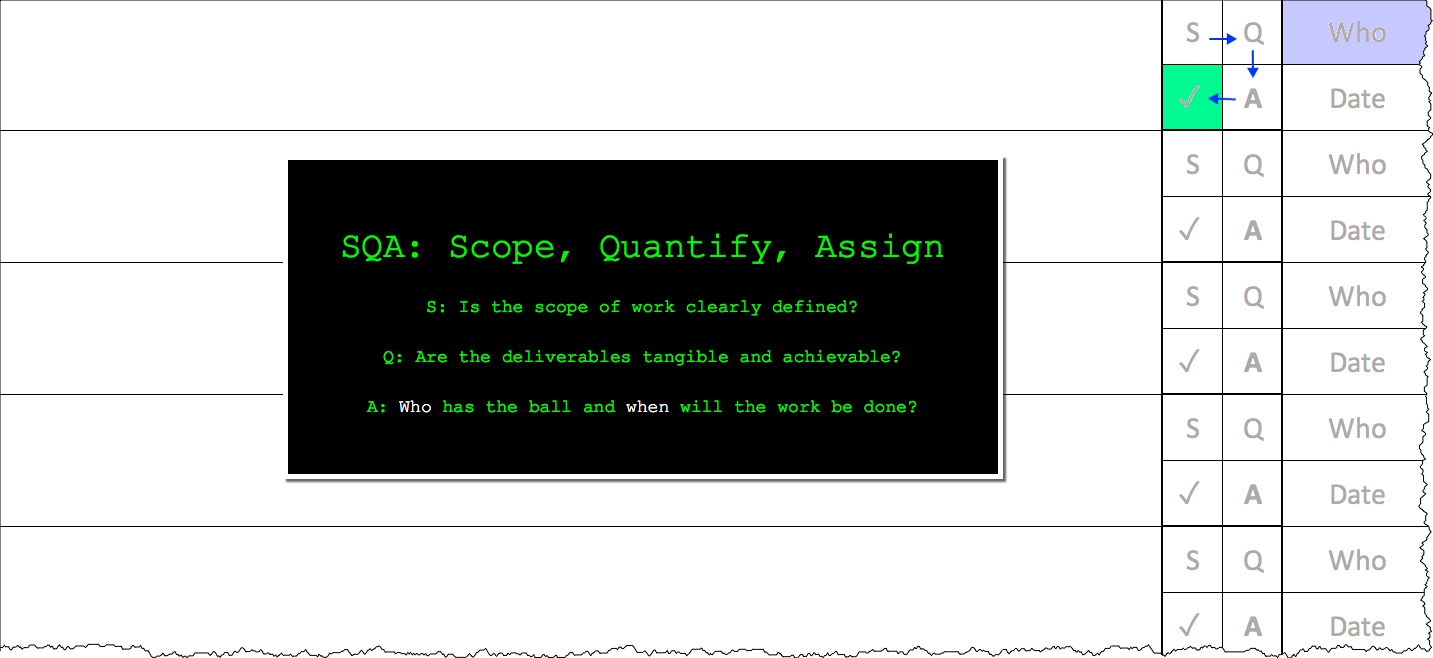Scope Quantify Assign (SQA)
Each project you start becomes a series of events. You usually know everything you need to know until the need arises. Moving towards completion of the project entails completing each event (milestone) and starting on the next best action.
Unfinished events must be dealt with through personal action or delegation. As long as the person you are delegating to has access to the system, and has all the information, knowledge, and experience they need to accomplish the task, leave it up to them (avoid telling them HOW to do it, just tell them what needs to get done).
Sometimes you need to 'clear the decks' and start fresh.
Here's the SQA system as it works (which is built into the AuthorDock system)
S: Scope it out (clear objectives, and all the information we need to do the job). Clarify the goal and work intelligently. This is where you think before you act.
Q: Quantify it - This is where you make space to accomplish the task. It should be scheduled into an increment that is available in time & space. There is a transactional view of task completion that demands the effort is budgeted for in both time & money.
A: Assign It (create a ticket and assign it to an agent) - Here’s where you hand it off. By this point, you’ve already defined requirements and can drop the job into a work order. From here, it's time to hand it off and track it to completion. All you need to do is monitor the number of open cases for an agent.
So you can see how SQA & FAST are close cousins:
- Frequently Assessed: Keep 'em top of mind all the time! (Leverage Deadlines)
- Ambitious: Create Tension & Conflict
- Specific: Focus on the metrics: Goals Specific With Metrics and Milestones (OKRs)
- Transparent: Make your goals transparent.
Putting it into action

From ideation to completion
Step 1 - Define the Scope (S)
It's all about your choice of words. Ideally, I try to use clear and concise language that drives action. I am motivated to complete the incomplete and work on tasks that make an impact. I'm motivated to act where we can provide the greatest value and money is a tangible form of gratitude that validates value. Thus, I tend to prioritize the things I am paid to do. When my money needs are met, my next motivation is love. When I am doing something for the love of it (or doing it for someone I love), it's the most rewarding (and often doesn't feel like work at all). This is also where flow often begins.
Step 2 - Quantify the Result (Q)
Step 3 - Assign the resource (A)
Is there a deadline? If not, can you assign an arbitrary one? Is there a budget (money)? When (time) will it happen?